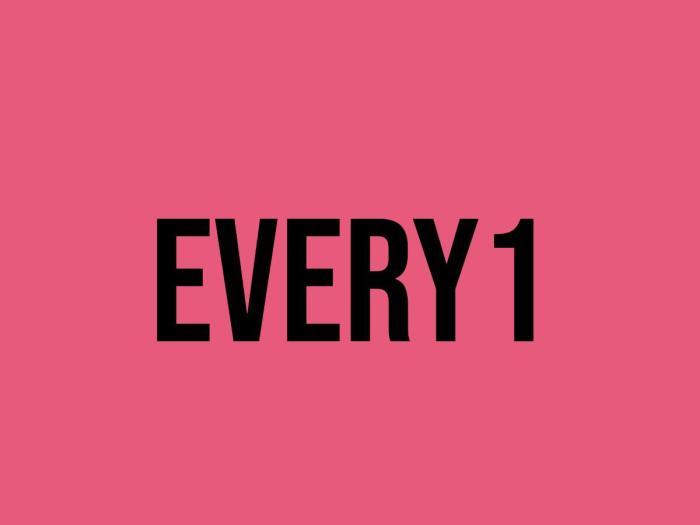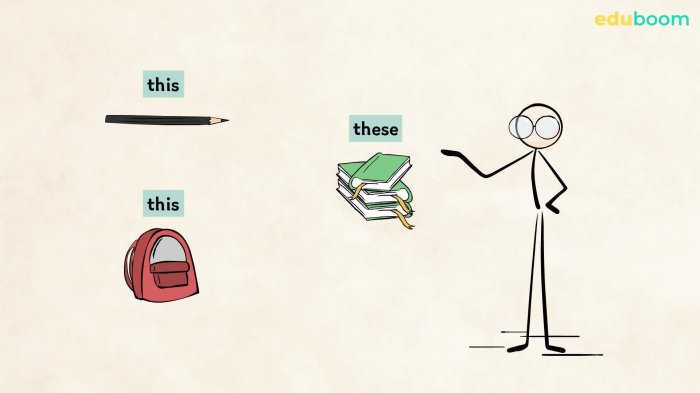18 mistakes you should make and never apologize for. This isn’t about malice, but about understanding when an apology isn’t necessary, or even counterproductive. We’ll delve into defining “mistakes” and “apologies,” exploring various categories of justifiable non-apologies, and analyzing the psychology and social implications behind choosing not to apologize in specific situations.
From personal missteps to professional blunders, this guide provides a nuanced perspective on when to stand your ground and when to consider other approaches. We’ll look at specific examples, case studies, and strategies to help you navigate these tricky social situations with confidence and clarity.
Defining “Mistakes” and “Apology”
Defining mistakes and the appropriate response, whether an apology or not, is complex. It’s not always a simple binary; the context, intent, and impact significantly influence the best course of action. Navigating these nuances is crucial for maintaining healthy relationships and navigating various social landscapes.Mistakes are inherently human; they represent deviations from expected norms, behaviours, or standards, whether in personal, professional, or social contexts.
They encompass a wide spectrum of actions, from minor oversights to significant errors. Acknowledging and learning from mistakes is key to personal and professional growth. This exploration delves into the definition of mistakes, different types of apologies, and the subtleties of choosing not to apologize.
Defining Mistakes
Mistakes are deviations from expected norms, behaviours, or standards. They encompass a broad range of actions, from minor oversights to significant errors. These errors can manifest in various spheres of life:
- Personal Mistakes: These include actions that harm oneself or others emotionally, physically, or financially. Examples range from impulsive decisions to neglecting responsibilities. The impact can vary from mild discomfort to severe consequences.
- Professional Mistakes: Errors in judgment, communication, or conduct in a professional setting can range from missed deadlines to ethical breaches. Consequences often involve reputational damage, financial penalties, or job loss.
- Social Mistakes: These are errors in social etiquette or communication that can cause offense or embarrassment to oneself or others. Examples include inappropriate jokes, insensitive comments, or failing to acknowledge social cues.
Types of Apologies
Apologies come in various forms, each carrying different weight and implications:
- Formal Apologies: These are typically written statements expressing remorse and acknowledging responsibility. They are often used in professional or legal settings, such as public statements of regret or formal letters of apology.
- Informal Apologies: These are verbal expressions of regret, often delivered in person or over the phone. They often involve acknowledging the error and expressing regret for the impact on the other person. Examples include saying “I’m sorry” or a more elaborate explanation of the mistake.
- Implied Apologies: These are not explicit expressions of remorse but actions that demonstrate regret. For example, repairing the damage caused by a mistake or taking steps to prevent future occurrences. Offering compensation, assistance, or future efforts can act as implied apologies.
Nuances of “Never Apologizing”
The decision to “never apologize” can have varied interpretations and consequences. This decision can range from a strategic choice in specific contexts to a personal philosophy. This approach’s effectiveness and acceptability vary across cultures and social groups. It’s crucial to understand the context when evaluating this strategy.
- Cultural Context: Some cultures place a higher value on expressing apologies than others. In certain cultures, maintaining personal honour might outweigh the need for an apology.
- Personal Values: Individual values and beliefs about responsibility and accountability play a role in whether or not an apology is deemed necessary.
- Relationship Dynamics: The nature of the relationship between the parties involved greatly impacts the appropriateness of an apology. A formal apology might be expected in a professional context but less so in a casual friendship.
Consequences of Apologizing vs. Not Apologizing
The consequences of apologizing or not apologizing for mistakes depend on various factors. The following table illustrates potential outcomes:
| Mistake Type | Apologizing | Not Apologizing |
|---|---|---|
| Minor Social Error | Maintains positive relationship, avoids escalation, potentially fosters trust. | Might damage relationship, create a sense of disrespect, potentially lead to conflict. |
| Significant Professional Error | Shows accountability, potentially mitigates damage, might lead to learning opportunity. | Potentially damages reputation, hinders trust, could lead to legal repercussions. |
| Personal Hurtful Action | Shows empathy and remorse, potentially repairs relationship, builds trust. | Can worsen hurt feelings, damage trust, might lead to avoidance or estrangement. |
Categories of “Never-to-Be-Apologized-For” Mistakes

Embarking on a journey of self-discovery often involves navigating uncharted territory. Along this path, we inevitably stumble, make choices that later seem questionable, and face moments of perceived missteps. But not all missteps deserve an apology. This exploration delves into categories of errors that, while potentially flawed, are not worthy of regret or explanation.Understanding the nuances of these “never-to-be-apologized-for” mistakes allows us to reclaim our agency and stand firm in our convictions, fostering personal growth and resilience.
These are not about malicious intent, but rather about situations where a sincere apology would be counterproductive or, worse, a disservice to the individual’s integrity.
Self-Expression and Personal Growth, 18 mistakes you should make and never apologize for
This category encompasses errors related to personal expression and growth, where the mistake is intrinsically linked to the individual’s evolving self. A rigid adherence to a singular narrative of self-perception hinders progress and prevents honest self-assessment.
- Honest Opinions and Critical Thinking: Expressing an unpopular or controversial opinion, particularly in a respectful manner, does not necessitate an apology. If the opinion is expressed honestly and with a willingness to engage in respectful discussion, then an apology isn’t warranted. For example, sharing a differing perspective in a debate or offering constructive criticism, even if perceived negatively, is a sign of intellectual growth and does not require an apology.
- Learning and Experimentation: Experimenting with new ideas, skills, or approaches inevitably involves some trial and error. A perceived mistake in this process is often a stepping stone to improvement. Trying a new recipe, tackling a challenging project, or exploring a novel artistic style might lead to unexpected results. An apology for the result would be an admission of pre-existing perfection, which is counterintuitive to the learning process.
Unforeseen Circumstances and External Factors
Sometimes, mistakes are simply the product of circumstances beyond our control. Acknowledging this reality is crucial for maintaining emotional well-being.
- Unforeseen Delays and Mishaps: Traffic jams, equipment malfunctions, or unexpected medical issues can lead to missed deadlines or other perceived errors. An apology in these situations feels insincere, as the outcome was not directly attributable to a conscious choice. For example, a flight delay leading to a missed meeting, or a broken appliance causing a disruption, both situations warrant no apology.
- External Pressure and Constraints: External pressures or constraints often lead to actions or decisions that might appear problematic in hindsight. If the action was taken under pressure, and not driven by a conscious desire to harm, an apology is not required. For example, taking a shortcut at work to meet a tight deadline or making a compromise to appease a demanding client, in cases where no harm was intended, do not require an apology.
So, you’re looking to conquer those pesky Wi-Fi woes? Learning from 18 mistakes is a great way to avoid repeating the same blunders. Sometimes, embracing those missteps is key. For example, trying different troubleshooting methods like those outlined in this helpful guide on 11 diy ways to solve common wi fi problems can be a crucial part of that journey.
Ultimately, it’s about owning your mistakes and figuring out how to bounce back stronger. These 18 mistakes are lessons, not failures. Embrace them.
Communication and Interpersonal Dynamics
Effective communication is essential, but misinterpretations or misunderstandings are inevitable.
- Misinterpretations and Communication Breakdown: Misinterpretations or breakdowns in communication are not mistakes that necessitate an apology. If a communication was misinterpreted, the responsibility lies primarily on the receiver. For example, a misinterpreted email or a missed nonverbal cue, are not necessarily mistakes needing an apology.
- Honest Feedback and Confrontation: Offering honest feedback or confronting a problematic behavior does not require an apology if the intention is constructive. Providing feedback with the goal of improvement does not need an apology, as the aim is not to cause harm but to foster growth. For example, offering feedback to a colleague about a performance issue or expressing concerns about a project, in a non-abusive way, is not an apology-worthy mistake.
Social and Cultural Norms
Social and cultural norms vary greatly, and adhering to them can be challenging.
- Cultural Differences and Nuances: In intercultural interactions, unintentional cultural misunderstandings can arise. These misunderstandings do not require an apology if the intention was not malicious. For example, a misunderstanding about social etiquette or a misinterpreted gesture across cultures.
- Adapting to Changing Social Norms: Adapting to evolving social norms can involve some trial and error. A perceived misstep in this process does not necessitate an apology, as it is part of the natural process of adaptation. For example, navigating evolving online etiquette or adapting to a new social media trend.
Ethical and Moral Boundaries
This category encompasses mistakes rooted in moral or ethical principles, where a simple apology would be a betrayal of one’s values.
- Upholding Personal Values: Prioritizing one’s values and moral compass over social pressures or expectations is essential. If an action upholds these values, an apology is not needed. For example, refusing to compromise ethical principles or standing up for one’s beliefs, even if it is unpopular, does not need an apology.
- Maintaining Integrity: Integrity is a cornerstone of personal character. Actions rooted in a firm commitment to personal integrity do not warrant an apology. For example, refusing to engage in unethical practices or upholding honesty in difficult situations, do not need an apology.
| Category | Sub-Category | Scenario | Apology Impact | Rationale |
|---|---|---|---|---|
| Self-Expression and Personal Growth | Honest Opinions | Expressing unpopular political views | Apologizing could be perceived as a concession | Maintaining integrity and conviction is more important |
| Unforeseen Circumstances and External Factors | Unforeseen Delays | Missing a deadline due to a traffic accident | Apologizing might seem insincere | Circumstances beyond control do not require an apology |
| Communication and Interpersonal Dynamics | Misinterpretations | Misunderstanding a colleague’s feedback | Apologizing could be seen as admitting fault | Misinterpretation is not always a conscious mistake |
| Social and Cultural Norms | Cultural Differences | Making a culturally insensitive remark | Apologizing is important if the intent was harmful | Intent matters; unintentional mistakes don’t require apology |
| Ethical and Moral Boundaries | Upholding Values | Refusing to participate in unethical business practices | Apologizing would undermine the stance | Integrity and moral compass are more valuable |
Specific Examples and Scenarios

Navigating the complexities of human interaction often leads to situations where apologizing might feel like a compromise or an admission of fault. Understanding when an apology is truly necessary and when it’s counterproductive is crucial for maintaining personal integrity and healthy relationships. This exploration delves into specific examples, examining the nuances of context and individual values in deciding whether an apology is warranted.The decision to apologize or not rests on a multitude of factors.
Consider the specific situation, the relationship involved, and your personal values. Sometimes, a perceived mistake may be a justified action from your perspective. Ethical considerations are paramount in determining the appropriateness of an apology.
Examples of Situations Where an Apology Might Not Be Necessary
A thoughtful evaluation of the circumstances surrounding an action often reveals the need for an apology is not always present. Here are ten such examples:
- Standing Up for Your Beliefs: If you’ve expressed a dissenting opinion in a discussion, but feel your viewpoint is valid, and you’ve communicated it respectfully, an apology for expressing a different perspective isn’t warranted. Maintaining conviction in your beliefs, even when they differ from others, shouldn’t necessitate an apology.
- Refusing an Unreasonable Request: If you’ve politely declined a request that exceeds your capabilities or ethical boundaries, an apology isn’t necessary. Setting healthy boundaries is a form of self-care, and doesn’t necessitate an apology for prioritizing your well-being.
- Protecting Yourself from Harm: If someone’s actions or words put you in a potentially harmful situation, and you take necessary steps to protect yourself, an apology is not required. Self-preservation is a fundamental right and doesn’t necessitate an apology for safeguarding your well-being.
- Defending Yourself Against Accusations: If you’ve been falsely accused of wrongdoing, an apology for defending yourself against baseless accusations is unnecessary. You have the right to defend your reputation and actions without apologizing for doing so.
- Disagreements in the Workplace: A disagreement during a work meeting, where you’ve presented your perspective logically and professionally, does not require an apology. Differences of opinion are common in collaborative environments, and don’t automatically necessitate an apology.
- Addressing an Injustice: If you’ve spoken out against an injustice or inequality, an apology is not needed for speaking truth to power. Standing up for what is right should be commended, not apologized for.
- Honesty in a Relationship: Honest communication, even when it’s difficult, is crucial for healthy relationships. An apology isn’t required when you’re being truthful and respectful in a relationship.
- Setting Boundaries: If you’ve communicated clear boundaries, and someone crosses them, an apology for maintaining those boundaries is unnecessary. Protecting your personal space and comfort level does not require an apology.
- Correcting a Misunderstanding: If a misunderstanding arises due to unclear communication, and you’ve clarified the situation, an apology for correcting the misunderstanding is not necessary.
- Differences in Opinion: Expressing a contrasting opinion or viewpoint during a discussion does not necessitate an apology. Diversity in perspectives is a strength, not a fault that needs to be apologized for.
Negative Consequences of Apologizing in Certain Circumstances
There are scenarios where apologizing can be detrimental to your well-being or relationships. These scenarios highlight when an apology may be counterproductive:
- Taking Responsibility for Someone Else’s Actions: Apologizing for actions you did not commit can damage your integrity and create an unfair burden. It’s important to avoid taking responsibility for situations where you bear no accountability.
- Accepting Blame for Unjustified Criticism: If you’ve been unfairly criticized or judged, an apology for something you haven’t done is not only inappropriate but potentially damaging to your self-esteem. Avoiding unnecessary apologies for unjustified criticism is crucial.
- Enabling Harmful Behaviors: If someone’s behavior is harmful, apologizing for it can inadvertently normalize or encourage it. Sometimes, setting firm boundaries and disallowing harmful actions is more beneficial than apologizing.
- Compromising Personal Values: Apologizing for actions aligned with your core values can lead to feelings of inadequacy and pressure to conform. Upholding your principles is vital, and an apology in such cases could compromise your integrity.
- Damaging Personal Authority: Repeated apologies for minor offenses can diminish your authority and respect in a professional or personal setting. Maintaining a healthy balance between maintaining a good image and avoiding unnecessary apologies is key.
Context and Individual Values in Determining Apology Necessity
Individual values and the specific context of the situation play crucial roles in determining the need for an apology. Consider the specifics of the situation and how they align with your personal code of conduct.
Ethical Considerations of Not Apologizing
Ethical considerations regarding the decision not to apologize involve evaluating the action’s intent, the impact on others, and the broader context. If an action was intentional and caused harm, and an apology would repair the damage, then not apologizing may be unethical.
The Psychology Behind Non-Apology
Sometimes, a simple “I’m sorry” feels impossible. Beyond the perceived transgression, underlying psychological factors often drive individuals to avoid apologizing for certain mistakes. These factors can range from ingrained defense mechanisms to deeply held beliefs about power and self-worth. Understanding these motivations can help us navigate complex social situations with greater empathy and clarity.Avoiding an apology isn’t always about malice; it can be a complex interplay of psychological reactions to perceived slights, fears, and self-perceptions.
These reactions often stem from a need to protect the ego, maintain a sense of control, or navigate social dynamics. The decision to apologize or not is often influenced by a complex interplay of factors, including the individual’s personality, past experiences, and the specific context of the situation.
Psychological Defense Mechanisms and Avoidance
The human psyche possesses various defense mechanisms that can unconsciously trigger a refusal to apologize. These mechanisms act as coping strategies, often shielding individuals from emotional pain or perceived threats. Understanding these mechanisms can illuminate the reasoning behind a lack of apology.
Sometimes, the best way to grow is by embracing a few missteps. My latest post dives into 18 mistakes you should absolutely make and never apologize for, like taking a chance on a new hobby or stepping outside your comfort zone. Learning to embrace these imperfections fuels growth, and sometimes, a little experimentation leads to surprising discoveries. Speaking of growth, did you know that protein shakes can be incredibly beneficial for your health and well-being?
Check out 8 wonderful benefits protein shakes to see how incorporating them into your routine can support your fitness goals. Ultimately, those 18 mistakes are all part of the journey to becoming a better, more confident you.
| Defense Mechanism | Connection to Avoiding Apology |
|---|---|
| Denial | Refusing to acknowledge any fault or responsibility for the mistake. |
| Rationalization | Creating logical explanations to justify the mistake and diminish personal accountability. |
| Projection | Attributing blame for the mistake to others, thereby avoiding self-criticism. |
| Displacement | Directing anger or frustration towards a different target instead of the person who was affected by the mistake. |
| Regression | Reverting to immature behaviors or emotional states to avoid confronting the situation. |
| Repression | Subconsciously pushing the mistake and the associated feelings of guilt or shame out of awareness. |
Pride, Ego, and the Apology Decision
Pride and ego often play significant roles in the decision to apologize or not. Individuals with inflated egos may see apologizing as a sign of weakness or vulnerability, damaging their perceived image of self-sufficiency and superiority. A strong sense of pride, when intertwined with an inability to admit fault, can lead to a refusal to apologize, even when the action warrants it.
The perceived loss of face associated with an apology can be a powerful deterrent. For example, a manager who believes they are always right may struggle to apologize for a poor decision that negatively impacted their team.
Power Dynamics and Apology
Power dynamics profoundly influence the willingness to apologize. In hierarchical structures, those in positions of power may feel less obligated to apologize for mistakes or actions that affect those lower on the hierarchy. This is not to say that people in positions of power never apologize, but rather that their context may affect their decisions. Conversely, those in subordinate positions might feel pressured to apologize, even when they believe they were not at fault.
For instance, an employee might feel compelled to apologize to a demanding boss, even if the mistake was a result of unclear instructions. In these instances, the power imbalance can dictate the perceived need to apologize.
Social and Cultural Implications
The act of apologizing, or not apologizing, is deeply intertwined with societal norms and cultural expectations. Different cultures have vastly different views on the importance and appropriateness of acknowledging mistakes. These varying perspectives significantly influence how individuals perceive and respond to errors, and ultimately shape the social landscape. This section delves into the nuanced ways in which culture impacts the notion of apology and non-apology.Cultural contexts often dictate whether and how an error should be addressed.
This impacts not only the individual making the mistake but also those affected by it, influencing social dynamics and relationships. Understanding these cultural variations is crucial for navigating interpersonal interactions effectively and fostering mutual respect.
Ever wondered about those little missteps that actually make you stronger? Learning from mistakes is key, and sometimes, embracing them is even more important. Check out my thoughts on 18 mistakes you should make and never apologize for. To help you power through those learning curves, consider these 5 motivational tips for students: 5 motivational tips for students.
Ultimately, the freedom to experiment and learn from those “mistakes” – without the baggage of self-criticism – will help you grow and find your unique path. That’s the real magic behind embracing those 18 mistakes.
Societal Norms and Expectations of Apology
Cultural norms dictate the acceptable levels of humility and accountability. In some cultures, a direct and formal apology is expected, while in others, a more indirect or subtle expression of regret might suffice. These expectations are shaped by values surrounding face-saving, directness, and emotional expression. A failure to recognize these differences can lead to misunderstandings and misinterpretations, even when the intent is good.
Cultural Variations in Apology Practices
Different cultures have distinct approaches to expressing regret. For instance, in some Eastern cultures, maintaining harmony and avoiding conflict may outweigh the need for a direct apology. A simple nod, a quiet gesture, or a subtle act of compensation might be sufficient to mend a relationship. Conversely, Western cultures often prioritize direct acknowledgment of wrongdoing and an explicit apology.
- East Asian cultures often prioritize maintaining social harmony and avoiding direct confrontation. Apologies may be implicit or expressed through indirect actions, like offering a gift or providing assistance. The focus is on restoring social equilibrium, rather than explicitly admitting fault.
- Western cultures generally value direct and explicit expressions of regret. A verbal apology is often considered the most appropriate way to address a mistake. The focus is on acknowledging the error and rectifying the situation.
- Latin American cultures often value personal relationships and may use apologies as opportunities for strengthening bonds. The focus might be on expressing empathy and remorse, rather than just acknowledging the mistake itself.
These variations underscore the importance of considering the cultural context when interpreting expressions of regret.
Impact of Social Groups on Non-Apology
Different social groups within a culture might also have varying interpretations of when an apology is necessary or appropriate. For example, within a professional environment, certain roles or positions may require a higher degree of accountability and public acknowledgment of errors. In contrast, in personal relationships, the need for a formal apology might be less pronounced.
- Professional settings often demand greater transparency and accountability. Senior executives or public figures may face stronger societal pressures to publicly acknowledge and apologize for mistakes. This is often viewed as a sign of integrity and professionalism.
- Personal relationships often involve a more nuanced understanding of apologies. The context of the relationship and the nature of the transgression may influence the need for a formal apology. In some cases, a simple explanation or gesture of reconciliation might be sufficient.
Understanding these differences within social groups is vital to avoid misinterpretations and foster harmonious interactions.
The Role of “Face-Saving” in Avoiding Apologies
The concept of “face-saving” is a significant cultural factor influencing the decision to apologize or not. In many cultures, admitting fault can be perceived as a loss of prestige or social standing. Individuals may therefore choose to avoid apologies to protect their public image. This is particularly relevant in hierarchical societies or situations where maintaining social standing is highly valued.
“Face-saving” is a concept that highlights the importance of maintaining one’s social standing and reputation in a given culture. It can significantly influence the decision to apologize or not.
These factors demonstrate the complex interplay between culture, society, and the perception of apologies. This intricate web of social expectations shapes individual behaviors and responses to errors, often influencing the decision to apologize or not.
Practical Applications and Strategies
Navigating social interactions without always needing to apologize can be tricky, but with a strategic approach, you can confidently manage situations where an apology might be perceived as unnecessary. This involves understanding when a non-apology is a valid response and how to communicate effectively without sacrificing your integrity. It’s not about being rude; it’s about recognizing your actions and their impact, and responding accordingly.Knowing when to avoid an apology requires a clear understanding of the context.
This isn’t about ignoring wrongdoing; rather, it’s about recognizing certain actions where an apology is not only unnecessary but might even be counterproductive. By focusing on proactive communication and understanding the nuances of different situations, you can avoid unnecessary apologies and maintain your personal integrity.
Strategies for Handling Situations Requiring No Apology
Effective communication is key in avoiding unnecessary apologies. Recognizing when an apology is not needed is crucial. Understanding the context and your role in the situation helps determine whether an apology is truly necessary or not.
- Clarifying Misunderstandings: Instead of apologizing for actions you didn’t take or for statements misinterpreted, focus on clarifying the actual situation. Providing precise details and rephrasing your message can resolve misunderstandings without an apology.
- Maintaining Boundaries: If someone crosses your boundaries, avoid apologizing for setting those boundaries. Standing firm and explaining your limits is a sign of respect for yourself and your needs, not an admission of wrongdoing.
- Addressing Criticism Constructively: If you receive criticism, focus on understanding the perspective and addressing specific points with reasoning. Don’t apologize for not meeting expectations if your approach was justifiable and aligned with your values.
Mitigating Negative Impacts of Non-Apology
A non-apology approach can have potential consequences, and it’s vital to mitigate these. Preparation is key to minimizing the negative impact.
- Anticipating Potential Reactions: Consider how your actions might be perceived by others. Foreseeing potential negative reactions allows you to proactively address any concerns or misunderstandings before they escalate.
- Building Strong Relationships: Focus on maintaining positive relationships by fostering open communication and respect. This creates a foundation where your actions are understood, even if an apology isn’t offered in every case.
- Transparency and Honesty: Be honest about your motivations and intentions. Openness and clarity can reduce the likelihood of misinterpretations, minimizing the potential for negative consequences.
Determining Strategic Benefits of Non-Apology
Strategic use of non-apology is possible, but understanding the conditions is crucial. Assessing the situation and your role in it helps you decide when to avoid an apology.
- Assessing the Context: Consider the specific circumstances, the relationship dynamic, and the potential impact of your actions. Evaluate whether an apology would be genuinely beneficial or perceived as insincere or a concession.
- Evaluating Your Role: Identify whether your actions were a violation or a justifiable response to a situation. Understanding your role clarifies whether an apology is necessary.
- Considering the Potential Outcome: Think about the possible repercussions of both apologizing and not apologizing. A strategic assessment helps determine the best course of action based on the situation and desired outcome.
Communicating Effectively Without Apologizing
Effective communication in situations where an apology isn’t needed involves clear and direct articulation of your position. Avoid ambiguity and ensure your message is easily understood.
- Using “I” Statements: Express your feelings and thoughts without placing blame on others. This approach clarifies your position without an apology.
- Focusing on Facts: Provide objective information and evidence to support your claims. This reduces the room for misinterpretation and promotes clarity.
- Remaining Calm and Composed: Maintain a calm demeanor to avoid escalating tensions. This helps ensure your message is heard and understood without emotional outbursts.
Illustrative Examples and Case Studies: 18 Mistakes You Should Make And Never Apologize For
Navigating social interactions often requires a nuanced understanding of when an apology is necessary and when it’s not. This section dives into hypothetical case studies to illustrate situations where a lack of apology might be a justified response, not necessarily a sign of poor character, but a reflection of a specific context. Understanding these scenarios helps clarify the complexities of human interaction.
Case Study Examples of Justified Non-Apologies
This section presents hypothetical case studies highlighting situations where not apologizing might be a reasonable choice, considering the circumstances. Each scenario demonstrates different facets of interpersonal dynamics and the potential justifications for avoiding an apology.
| Case Study | Context | Mistake | Reason for Not Apologizing | Potential Outcomes |
|---|---|---|---|---|
| Case 1: The Misunderstood Email | A team leader sends an email perceived as harsh by a colleague. | The email was poorly worded, creating a negative impression. | The leader felt the email, while not perfect, accurately conveyed the intended message, and the colleague misinterpreted it. | The colleague might still be upset, but the leader’s tone is justified to the team, leading to better understanding of the email’s intent in the future. |
| Case 2: The Misconstrued Feedback | A manager provides constructive criticism during a performance review. | The employee felt the feedback was too harsh and dismissive. | The manager felt the feedback was constructive, addressing a valid concern, but the employee took it personally and negatively. | The employee might have a negative perception of the manager, while the manager may be seen as firm and fair by other colleagues. |
| Case 3: The Conflicting Priorities | A friend cancels a planned outing due to an unexpected family emergency. | The friend cancels at the last minute, leaving the other friend feeling hurt. | The friend prioritized a more urgent and important family matter. An apology might feel disingenuous given the reason. | The friend might still be concerned about the impact of the cancellation, but the apology may not fully resolve the issue given the nature of the situation. |
| Case 4: The Misunderstood Cultural Nuance | A colleague misunderstands a cultural difference in communication style. | The colleague made a comment perceived as offensive due to cultural differences in communication. | The colleague is unaware of the cultural difference. An apology might feel inappropriate as it would not acknowledge the actual misunderstanding. | The colleague might feel the apology is insincere or not address the root of the issue. A subsequent explanation of cultural differences might be more helpful. |
| Case 5: The Unintentional Slander | A social media post, unintentionally, harms someone’s reputation. | The post contained a rumour that turns out to be false. | The poster did not intend to spread false information. The apology might not address the issue of the rumour being false. | The poster might face negative consequences, but an apology may not repair the damage to the reputation. |
Key Elements of Each Case
- Case 1: The email was poorly worded, creating a negative impression. The recipient misinterpreted the message. The team leader felt the email was accurate, but not tactfully written.
- Case 2: Constructive criticism was misconstrued by the employee, who took it personally. The manager felt the feedback was necessary but the delivery could have been improved.
- Case 3: A friend cancelled a planned outing due to a family emergency. The friend prioritized a more urgent family matter.
- Case 4: A colleague misunderstood a cultural difference in communication style. The colleague was unaware of the cultural difference. An apology might not address the actual misunderstanding.
- Case 5: A social media post unintentionally harmed someone’s reputation by spreading a false rumour. The poster did not intend to spread false information.
Potential Outcomes
- Case 1: The colleague might be upset, but the team leader’s actions are justified. Future communications could be more tactful.
- Case 2: The employee might have a negative perception of the manager. The manager might be perceived as firm and fair by other colleagues.
- Case 3: The friend might still be concerned about the impact, but the apology may not resolve the issue. The friend might understand the importance of the family emergency.
- Case 4: The colleague might feel the apology is insincere or does not address the root of the issue. A subsequent explanation of cultural differences might be more helpful.
- Case 5: The poster might face negative consequences, but an apology may not repair the damage to the reputation. The poster might be seen as taking responsibility.
Avoiding Misunderstandings and Conflict
Navigating social interactions without apologies can be tricky. It’s not about being rude, but about understanding the nuances of communication and how your actions might be perceived. This section focuses on proactively managing potential conflicts and misunderstandings that arise when someone perceives a lack of apology as disrespectful.Misunderstandings often stem from differing interpretations of actions and intentions. Avoiding conflict requires anticipating how others might react to your choices, and having strategies in place to address their concerns without resorting to an apology.
This proactive approach builds stronger relationships and avoids unnecessary tension.
Understanding Different Perspectives
A key aspect of managing potential conflict is recognizing that not apologizing isn’t inherently wrong, but how it’s received can be crucial. Some people value apologies as a sign of acknowledgment and remorse, while others may see them as unnecessary or even performative. This difference in perspective is important to consider when interacting with others. Consider how your actions and choices might be interpreted by various individuals.
Strategies for Managing Potential Fallout
Preemptive communication and a clear understanding of your stance are vital in managing potential fallout. Anticipating potential reactions allows you to address concerns proactively.
- Proactive Communication: Communicate your intentions and reasoning clearly. This allows others to understand your perspective, even if they disagree with it. If a decision might be perceived negatively, communicating the reasoning behind it beforehand can mitigate the negative reaction.
- Active Listening: Actively listen to concerns raised by others. Acknowledge their feelings, even if you don’t agree with their interpretation of your actions. This demonstrates respect and shows that you value their input.
- Empathetic Response: Try to understand the other person’s point of view. Even if you don’t feel the need to apologize, consider how they might be feeling and address those feelings directly.
Addressing Concerns
Direct and respectful communication is key when addressing concerns. Instead of deflecting or avoiding the conversation, focus on clarifying the situation and addressing the underlying concerns.
- Clarifying Actions: When concerns arise, calmly and concisely explain the reasoning behind your actions. Focus on the facts and avoid defensiveness. Example: “I understand your concern about the deadline. I prioritized this task because [explain reason] and believed it would best serve the overall project.”
- Acknowledging Feelings: Validate the other person’s feelings, even if you don’t share their perspective. Saying something like, “I understand why you might feel that way” can help de-escalate the situation.
- Focus on Solutions: If possible, collaborate on finding solutions that address everyone’s needs. Avoid focusing solely on who is right or wrong. Example: “How can we ensure that similar issues don’t arise in the future?”
Handling Potentially Confrontational Situations
In some situations, an apology might not be the appropriate response, and attempting to address the issue directly is more constructive. This could involve calmly explaining your rationale or re-framing the situation.
- Setting Boundaries: If the conversation becomes unproductive or disrespectful, it’s essential to set boundaries. This might involve stating that the conversation is not productive or that you’re not willing to engage further. Example: “I’m not comfortable discussing this further in this manner. Perhaps we can schedule a time to talk again when we’re both more calm.”
- Seeking Mediation: If the situation escalates beyond your ability to manage, consider involving a neutral third party to facilitate the conversation. This could be a supervisor, colleague, or other trusted individual.
- Disengaging Strategically: In some cases, disengaging from the conversation might be the best course of action. This is not necessarily a sign of weakness, but a recognition of the need to prioritize your well-being and avoid further conflict.
Last Word
Ultimately, the decision to apologize or not is a complex one, influenced by context, individual values, and societal norms. This exploration provides a framework for understanding when a non-apology is not only acceptable but perhaps even strategically beneficial. We hope this guide helps you navigate the nuanced landscape of interpersonal communication with greater clarity and confidence.











